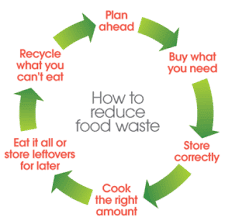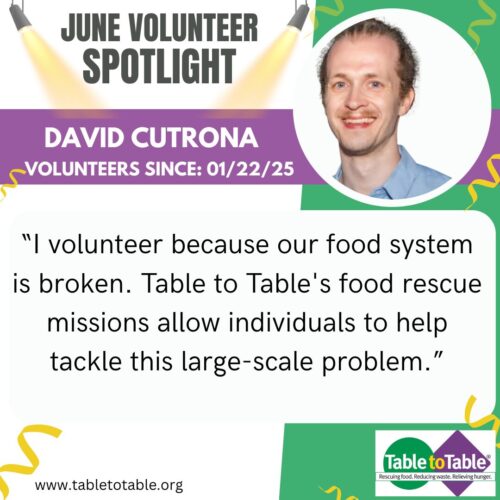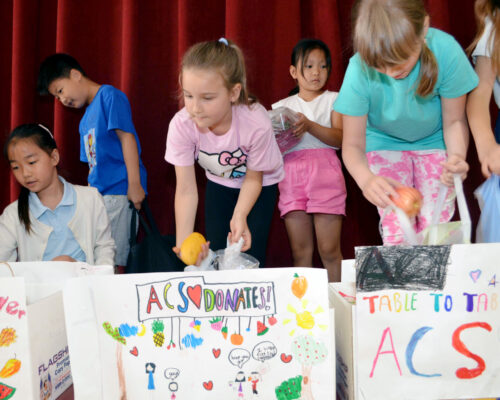
Blog
How Can You Reduce Food Waste This Earth Day?
This Earth Day ponder this real life situation: since Covid-19, food insecurity has skyrocketed. More specifically, for Northern New Jersey between 2019 and 2020, significantly increased by 42% to 62% in those who are food insecure, ranging from 10% to 15% of the total population.
Yet, the Environmental Protection Agency estimates that more food (over 76 billion pounds per year) reaches landfills and combustion facilities than any other material in everyday trash, constituting 22% of discarded municipal solid waste.*
Landfills are the third-largest source of human-related methane emissions in the United States. Discarded food is sent to landfills, where it rots and produces methane gas, which is the second-most common greenhouse gas. In other words, throwing out your food contributes to climate change. When food is wasted, the fertilizer, water, packaging, labor and transportation needed to grow the food, process, package, and deliver it to you are also wasted.
Enter Table to Table
Table to Table, New Jersey’s first & only food rescue program, collects food from about 150 donors (supermarkets, food distributors, restaurants, and commercial kitchens) and delivers it the same day free of charge to more than 250 community organizations, including food pantries, shelters, day care/after school programs, senior adult centers, and other programs serving food insecure households.
You = Solution
Helpful Tips to Reducing Food Waste
Although the statistics may seem overwhelming, you can do your part to help reduce food waste. Use this Earth Day to shift your thinking and your behavior. Adopt a tip or two to help our planet!
- Buy What You Need, Not What You See
It’s one thing to buy extra food items that are nonperishable, but when it comes to produce, meat, fish, and dairy, scrutinize your shopping closely before you enter the supermarket. Avoid buying in bulk, and instead, make frequent trips to the grocery store every few days. And, be sure to plan your meals out for the week, so you use food efficiently. Plan to eat more delicate produce first and save more hearty items like squash, sweet potatoes, and brussels sprouts until later in the week.
- Organize Your Fridge
I’m sure you’ve heard the saying: “Organization is the key to success.” Well, it applies to almost everything in your life, including your fridge. Be sure to store items that are soon to expire or are more delicate toward the front. Don’t overstock shelves so that it’s hard to easily see the items. Pay attention to expiration dates and be sure to store leftovers in clear containers so that you can easily see the contents.
- Prevent Food Spoilage
One of the easiest ways to avoid food waste at home is to properly store your food, especially produce. Some combinations of fruit and vegetables may ripen faster than normal when stored together. For example, bananas, peaches, and avocados produce ethylene so you’ll want to separate them from more sensitive produce such as berries, potatoes, and apples. And, read up on your produce. Not every fruit and vegetable needs to be housed in the fridge. Onions, potatoes, and tomatoes can be kept at room temperature.
- Use the Whole Food
Many nutrients are located in the skin or outer peel. Apples—for example—contain antioxidants in their peel, yet many people remove the peel before eating. Apples are just one item. Other produce with nutrient-rich outer layers are carrots, cucumbers, and eggplants. And, when making broccoli, be sure to use the stalks in addition to the florets. You can opt to roast the stalks or grate them for some delicious slaw.
- Whip Up a Smoothie or Soup
If you have a selection of fruits and vegetables that are beginning to wilt, simply repurpose them into a soup or a smoothie! Some tired spinach leaves mixed with banana, blueberries, peanut butter, and almond milk makes a great breakfast on the go or afternoon pick-me-up. Similarly, after the family eats that rotisserie chicken, pop it into a stock pot with some onion, carrots, celery, and spices to create a tasty broth that can be eaten alone or used as consommé for other sauces and meals.
- Donate Now
If time is not an option at the moment, consider a monetary donation by clicking here. With your generous contribution, you will be helping the more than 1 million people in New Jersey facing hunger daily. And, remember every dollar you donate to Table to Table provides enough fresh food for 10 healthy meals.
Any and all of these tips can make a difference in the reduction of food waste. This Earth Day, stand with Table to Table to help those experiencing food insecurity and make small changes in your home to help the planet.
*References:
Environmental Protection Agency food waste fact sheet.
https://www.healthline.com/nutrition/reduce-food-waste#TOC_TITLE_HDR_22
FeedingAmerica.org
More From News
July 3, 2025
How Much Food Will Go Uneaten on the Fourth of July?
June 30, 2025
David Cutrona: Volunteer Spotlight
REAL PEOPLE, REAL STORIES.
June 24, 2025
Elementary School Students Honored
More students are working to end hunger and reduce food waste. Students at Godwin and Highland Elementary schools in Midland Park were...
June 19, 2025
Leonia Students Donate Hundreds of Pounds of Produce
Every little bit counts. Second-graders at Anna C. Scott Elementary School in Leonia held a fresh produce drive for Table to Table...
May 23, 2025
Saddle River Inn Named Among the 25 Most Essential Restaurants in North Jersey
Take your best shot at fighting hunger. Join us for the 9th Annual Table to Table Golf Classic at the Preakness Hills...













